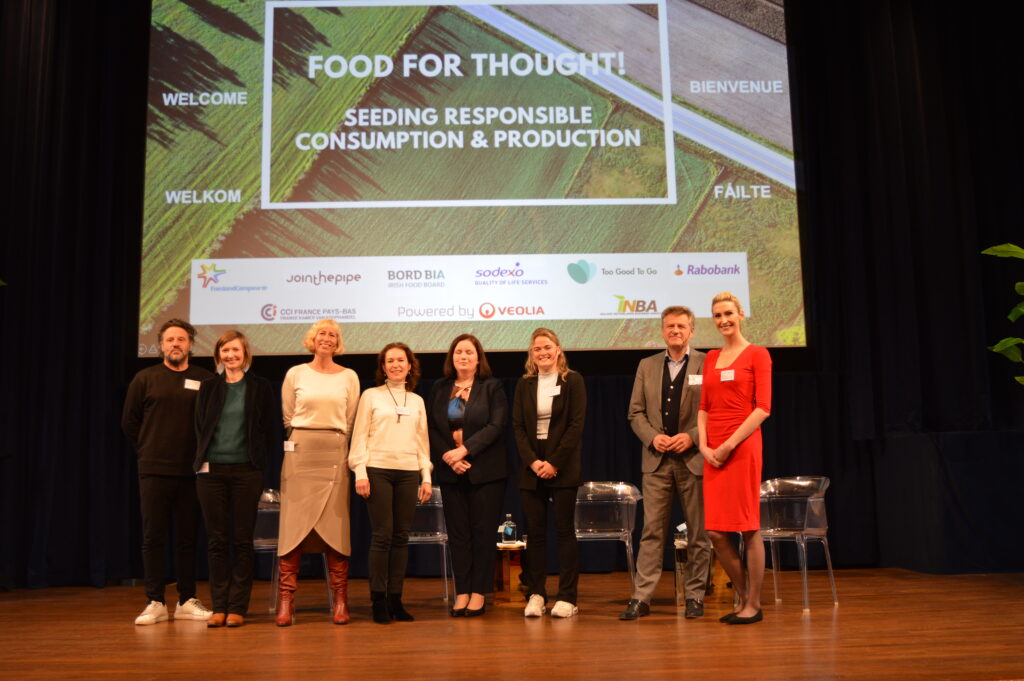Globally, we waste a third of all food produced. According to the United Nations, if global food waste were a country, it would be the 3rd largest emitter of greenhouse gases (GHG), just behind the United States and China. These two facts formed part of the backdrop to our “Food for Thought” seminar in KIT Royal Tropical Institute Amsterdam this week.
Industrialisation and mass production have defined and propelled centuries of economic growth and globalisation. But has this model of mass consumerism now reached its “sell-by date?” Does it still sustainably serve us? We have created an imbalance of overproduction against need in many places, draining essential natural resources and creating more waste, which is compounded further by the negative impact on our environment.
Triggered by an insightful question of a student in the audience: “How can we eliminate the creation of food waste, instead of treating it?” In an ideal world, we would replicate nature, taking exactly what we need to survive and thrive. But this is a utopia. Until we reach a tipping point where consumers are conscious of the total life cycle impact of their purchasing habits, apps such as Too Good To Go – and real-time data – play an essential role in this transition. They raise our awareness of this issue and nudge consumer behaviour, matching suppliers to where there is real, immediate demand.
Food waste is a complex problem, but like most things, it starts with us and changing our behaviours. Questioning before we purchase is part of our buying power… so do we need the 3 for 2 deals at the supermarket… consuming just the right amount, is also a way to waste less. Thank you to all speakers and attendees for coming. We hope to reunite for another thought provoking in-person seminar soon!
#FoodSustainability #SystemsChange #Future #MakingConnections #OriginGreen #SDG12 #EndFoodWaste
Speakers: Aurélie Letortu Geraldo Vallen Natasha Valeeva Lydia Croll Robert Claasen Deirdre Ryan
Moderator: Tieneke Breemhaar


